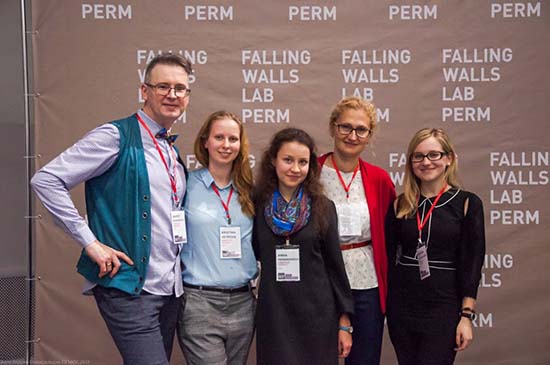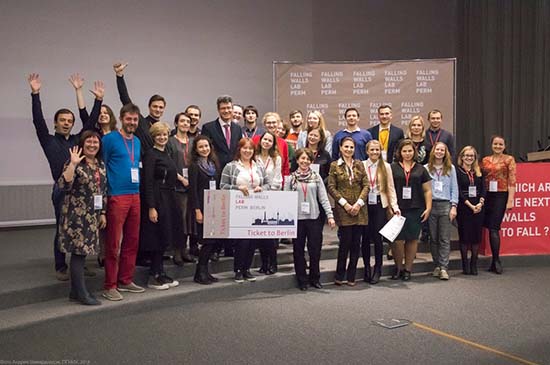PSU International projects
Academic Projects Office
Our functions:
• administration of international network programmes
• development and management of international academic projects, including projects supported by the Erasmus+ Programme
• preparation of Diploma Supplement and Transcript of Records according to the standards of the European Commission, the Council of Europe and UNESCO/CEPES
• recognition of foreign diplomas, qualifications and academic degrees
ARTEST: Enhancing education programmes in Arts and Humanities via European STEM methods and tools
2020-2023
The project aims at rethinking education in humanities in Russia and Mongolia in line with EU standards, research and practices to catch up with the latest trends of the labour market and reinforce education in humanities by adopting digital methods of research and education.
The ARTEST project is designed to achieve the following objectives:
- Development of innovative education methodology based on research and education methods of humanities, digital humanities and STEM (compiled in online manual);
- Trainings to equip HEIs’ teachers with innovative methods of the EU countries and facilitate their professional growth;
- Development, launch and piloting of multi-disciplinary Master degree programme with international student exchange opportunities;
- Creation of Digital Lab (virtual platform) which unites students, university teachers and researchers in international small-scale projects aimed at preserving and promoting cultural heritage;
- Promotion of innovations in education in humanities reinforced by STEM methods and tools via collaboration with cultural sector of labour market and joint small-scale projects of the Digital Lab.
Project consortium:
- Universitaet zu Koeln, Germany – grant holder
- Cyprus University of Technology, Cyprus
- Università degli Studi di Catania, Italy
- University of Peloponnese, Greece
- International Hellenic University, Greece
- Perm State University, Russia
- Russian State University for the Humanities, Russia
- Immanuel Kant Baltic University, Russia
- Tuvan State University, Russia
- Mongolian University of Science and Technology, Mongolia
- National University of Mongolia, Mongolia
- The University of the Humanities, Mongolia
Posts related to the project:
MEMEPOD: Media Education Mission: European Practices for Overcoming Disinformation
2020–2022
MEMEPOD project’s aim is to contribute to the spread of the EU practices of media education to overcome disinformation, propaganda and hate speech via developing critical thinking skills in the context of the internet, social and traditional media.
The specific objectives are as follows:
- Foster dissemination of the EU research, practices and initiatives in the field of media education to confront the threats of media illiteracy including disinformation, propaganda and hate speech;
- Organize series of events promoting EU achievements in raising media literacy;
- Equip adolescents and young adults with media literacy skills to develop their ability to think critically and recognize fakes, counter disinformation and hate speech;
- Promote professional development of HEIs and secondary schools teachers in the field of media education to incorporate media education practices to their compulsory and elective courses;
- Foster dialogue between the academic world and policy makers to facilitate adoption of EU initiatives and policies in RU education (in particular, approve Media Literacy Development Roadmap for Perm Krai Department of Education and disseminate this roadmap to other RU regions).
Posts related to the project:
FlexWBL: Development of a flexible, innovative and practical framework for Work-based Learning in higher education of Armenia and Russia
2019-2022
The project is aimed at developing a platform for the implementation of a work-based learning (WBL) framework in the national HE systems of Armenia and Russia. That is considered to bridge the gap between skills supply and labour market demands in university-enterprise network cooperation.
Objectives:
- To establish the WBL framework in the national higher education systems of Armenia and Russia in line with best European practices
- To build capacity within the higher education sectors through the implementation of courses incorporating work-based learning that are expected to enhance employability and provide transferable learning
- To create the WBL web-space to facilitate the dissemination of the WВL approach
- To pilot the implementation of WBL framework at universities of Armenia and Russia
Project consortium:
- University of Liepaja, Latvia
- University of Klaipeda, Lithuania
- Private University of Education (PH-Linz), Austria
- Tver State University, Russia
- Don State Technical University, Russia
- Perm State University, Russia
- Advanced Training Institute of managerial workers and specialists Federal Service for hydrometeorology and environmental monitoring (ATI), Russia
- Yerevan Brusov State University of Languages and Social Sciences, Armenia
- Gavar State University, Armenia
- National University of Architecture and Construction, Armenia
UNISON: University-Enterprise Cooperation via Spin-off Companies Network
2016–2019
The project is aimed at enhancing university-enterprise cooperation via spin-off companies (SOC) development. The concept of a spin-off company model, an innovative element of the project, is supposed to facilitate university-enterprise cooperation by establishing a link between science, technology and university spin-off companies.
Results:
- effective SOC Model for university-enterprise partnership is developed and disseminated
- spin-off companies are established in Russia, China and Georgia
- virtual international spin-off network is created
Project consortium:
- University of Santiago de Compostela, Spain
- Fachhochschule des Mittelstads Bielefeld, Germany
- Instituto Politecnico de Coimbra, Portugal
- Universities of the Russian Federation
- Universities of Georgia
- Universities of the People’s Republic of China
You may find more information about the project on its official website.
COMPLETE: Establishment of Centers for Competence and Employability Development
2015–2018
The aim of the project is employability development and reinforcement in compliance with Bologna process requirements. In the project framework factors of successful job placement were analyzed, the factors are as follows: supply-demand proportion in today’s labour market, demands and requirements of companies for graduates, employability problems that young specialists and researchers might encounter.
Results:
- Centers for Competence and Employability Development are established (CCED)
- modules, trainings and activities targeted at competence and employability developments are designed and piloted
- methodological materials are elaborated and disseminated
Project consortium:
- Fachhochschule des Mittelstads Bielefeld, Germany
- The Institute for Vocational Training, Labour Market and Social Policy, GmbH, Berlin, Germany
- Technological Educational Institute of Piraeus Athens (Egaleo), Greece
- University of Maribor, Slovenia
- Universities of the Russian Federation
- Universities of the Republic of Kazakhstan
To learn more about the project, please visit its official website.
Falling Walls Lab Perm 2020
In 2018 and 2020 PSU hosted the Falling Walls Lab Perm, regional stage of the international forum Falling Walls Lab.
The Falling Walls Lab is an international contest for the next generation of outstanding innovators and creative thinkers from all over the world. The winners of the Falling Walls Lab Perm 2018 and 2020 presented their ideas at the Falling Walls Lab Finale in Berlin.
German-Russian Science Days in Perm and DWIH-Infoseminar
21–22 May 2019
The events were organized in the framework of the cross-year of Russian-German scientific and educational partnership in 2018 – 2020.
Science talks and roundtables took place at two main venues in Perm with participation of the following scientists from Germany:
• Dr. L. Shumilovskikh, Universität Göttingen
• Prof. Dr. F. Rögener, Technische Hochschule Köln
• Dr.-Ing. Ch. Wünsch, Technische Universität Dresden
• Prof. em. Dr. M. Thaller, Universität zu Köln
DWIH-Infoseminar was devoted to discovering opportunities for cooperation with German scientists, universities and research institutions. Representatives of German centres, associations and foundations shared their presentations on this topic.
Speakers from the following organizations participated in the infoseminar:
• Deutsche Wissenschafts- und Innovationshaus in Moskau (DWIH)
• Deutscher Akademischer Austauschdienst (DAAD)
• Deutsche Forschungsgemeinschaft (DFG)
• Helmholtz-Gemeinschaft Deutscher Forschungszentren
• Freie Universität Berlin
• Universitätsallianz Ruhr (UA Ruhr)
• Ministerium für Kultur und Wissenschaft des Nordrhein-Westfalen
• Vertretung des Landes Niedersachsen in Russland
Info & contact
For more information, please, contact the Academic Projects Office:
office 404-405, Genkel Street 4, Perm 614990, Russian Federation,
E-mail: omas@psu.ru, fwlperm@gmail.com




